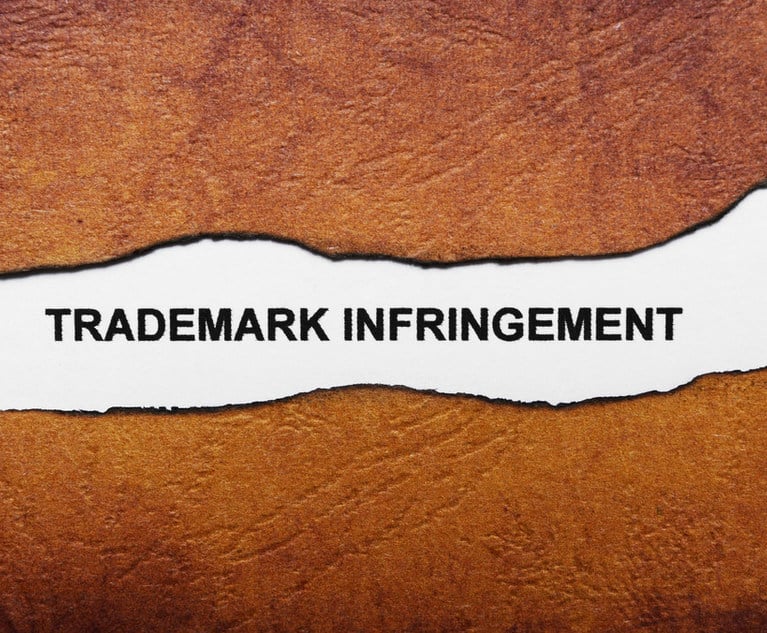Features

The Suspension Bridge Effect: Why Trademark Attorneys Must Protect Entire Brand Systems, Not Just Individual Marks
In brand protection, as in bridge engineering, the strength of brand differentiation (trademark distinctiveness) depends on the integrity of each supporting cable. When one snaps, the question is not only whether you can fix that component, but also whether the whole structure will hold together long enough for the repair crew to arrive.
Features

Tea Leaves Tell Tales: Jury Awards $2.36 Million for Bigelow’s “Manufactured in the USA 100%” Label
On April 8, a California jury found that R.C. Bigelow, Inc., the well-known manufacturer of Bigelow teas, intentionally or recklessly misled consumers by claiming that some of its teabags were “Manufactured in the USA.” The price for this mislabeling was steep, with the jury awarding the class action plaintiffs $2.36 million.
Features

Beyond the Logo: How AI Complicates Trademark Protection In the Digital Age
Today, building brands solely on the promise of a different product or service has become unsustainable. Any “new and improved” feature or benefit is quickly eclipsed by competitors. Consequently, brands signal category superiority not through rational claims, but by reinforcing a distinct persona — a “ness” comprised of distinguishing traits and behaviors that form an ownable brand essence difficult for competitors to replicate.
Features

TTAB Allows for Non-User to Oppose Trademark for Reputational Injury
In a recent case, although finding no standing in the case in front of it, a federal court noted that it was, however, possible that a nonuser could demonstrate entitlement to cancel or oppose by establishing either lost sales in the United States or reputational injury in the United States under the Lanham Act.
Features

Trademark Ruling on Netflix Running Point Series Holds Off ‘Death Knell’ of Rogers Tradition
A federal judge in California declined to stop the debut of the new Netflix series Running Point that Pepperdine University in Malibu, CA, claims infringes on its trademarks by using the mascot name, the “Waves,” and colors of the private Christian college.
Features

Sending a Shot Across the Brow: Drafting An Effective Trademark Demand Letter
At the end of the day, demand letters form an important part of a company's trademark enforcement strategy. But they must be just that — a part of a fully developed reasoned strategy rather than a knee-jerk reaction to perceived infringement. And that strategy will require some investigation and research to help ensure success.
Columns & Departments

IP News
Federal Circuit: PTAB Jurisdiction Exists Over Expired PatentsFederal Circuit: No Estoppel on Unadjudicated Claims
Features

Berry Bad Outcomes: Millions at Stake for Dewberry Group, Inc.
Last June, the U.S. Supreme Court granted certiorari to decide a $43 million suit between two real estate developers over the name “Dewberry.” The crux of the case once it reached SCOTUS is the extent to which courts can award the profits, not of the named defendant, but of the defendant’s affiliate for trademark infringement.
Features

Life, Liberty, and the Pursuit of Customers: Developments on ‘Conquesting’ from the Ninth Circuit
In a recent decision, the U.S. Court of Appeals for the Ninth Circuit addressed the issue of whether purchasing market competitors’ search engine keyword terms, known as “conquesting,” constitutes trademark infringement.
Features

Knockoffs: Are They Always Infringing?
When something is referred to as a "knockoff" it typically implies that the knockoff product is similar in appearance to an earlier product and is unlawful. But that is not always the case. Indeed, there can be infringing knockoffs and noninfringing knockoffs. It depends on the facts and circumstances. To appreciate the difference, a look into the general rules and some specific cases is needed.
Need Help?
- Prefer an IP authenticated environment? Request a transition or call 800-756-8993.
- Need other assistance? email Customer Service or call 1-877-256-2472.
MOST POPULAR STORIES
- Use of Deferred Prosecution Agreements In White Collar InvestigationsThis article discusses the practical and policy reasons for the use of DPAs and NPAs in white-collar criminal investigations, and considers the NDAA's new reporting provision and its relationship with other efforts to enhance transparency in DOJ decision-making.Read More ›
- The DOJ's Corporate Enforcement Policy: One Year LaterThe DOJ's Criminal Division issued three declinations since the issuance of the revised CEP a year ago. Review of these cases gives insight into DOJ's implementation of the new policy in practice.Read More ›
- A Lawyer's System for Active ReadingActive reading comprises many daily tasks lawyers engage in, including highlighting, annotating, note taking, comparing and searching texts. It demands more than flipping or turning pages.Read More ›
- Practice Tip: The Earning Capacity of Business OwnersThe owner of a business can claim as lost earning capacity in a personal-injury action only the working time lost due to injuries and harm to future earning capacity, not the business' alleged profits in perpetuity.Read More ›
- The DOJ's New Parameters for Evaluating Corporate Compliance ProgramsThe parameters set forth in the DOJ's memorandum have implications not only for the government's evaluation of compliance programs in the context of criminal charging decisions, but also for how defense counsel structure their conference-room advocacy seeking declinations or lesser sanctions in both criminal and civil investigations.Read More ›
